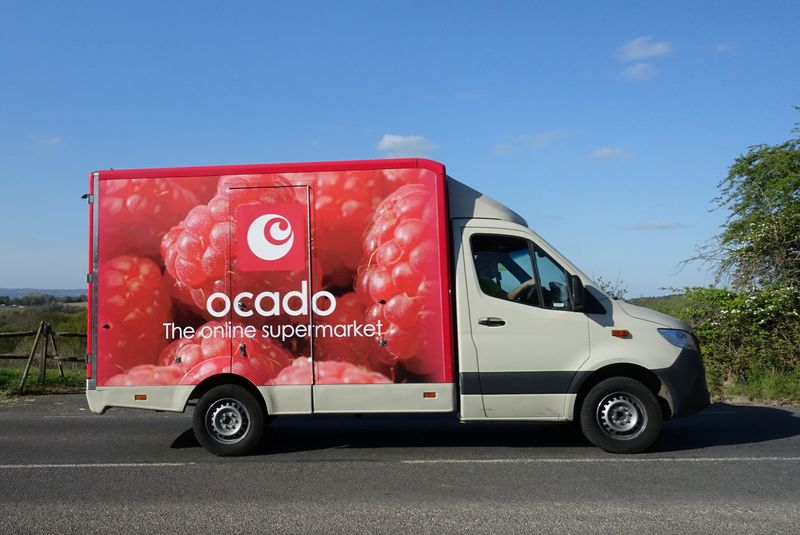LONDON (Reuters) – Ocado investor Royal London Asset Management said it will vote against the online grocer’s pay report at Wednesday’s annual meeting, calling CEO Tim Steiner’s 58.7 million-pound ($73 million) reward “excessive”.
The total remuneration package for Steiner, who co-founded Ocado <OCDO.L> in 2000, included a 54.1 million-pound bonus award linked to the group’s share price growth for the five years from 2014.
In total the “Growth Incentive Plan” paid out 87.5 million pounds to Ocado’s executive directors, including 13.5 million pounds each to chief financial officer Duncan Tatton-Brown and chief operations officer Mark Richardson, and 6.4 million pounds to Luke Jensen, CEO of Ocado Solutions.
“Ocado’s latest pay report is a classic example of how poorly designed incentive plans can lead to excessive awards for management,” Ashley Hamilton Claxton, head of responsible investment at Royal London Asset Management (RLAM), which holds a 0.3% stake in Ocado, said on Tuesday.
He said RLAM recognised the significant returns for shareholders which Ocado had delivered since the end of 2017, but was concerned its remuneration committee did not apply any discretion, particularly as the scheme ran alongside Ocado’s regular variable pay plans.
RLAM’s intervention follows that of shareholder advisory group Institutional Shareholder Services (ISS) which recommended investors vote against the pay report and against the re-election of Andrew Harrison, the director who chairs the remuneration committee.
“Ocado recognises the sensitivities around executive pay and places great emphasis on ensuring its executive remuneration is closely tied to creating value for shareholders and our broader stakeholders,” it said in a statement.
It said over the five-year period of the scheme 7.5 billion pounds ($9.4 billion) of value was created for Ocado investors.
“The remuneration committee is satisfied that Ocado’s pay schemes past and present, all of which have already been approved by shareholders, deliver above-market pay-outs only for outstanding results,” it added.
Ocado’s share price ended 2017 at 384 pence and closed on Monday at 1,688 pence, giving it a market capitalisation of 11.9 billion pounds. That is more than the combined market values of Sainsbury’s <SBRY.L>, Britain’s No. 2 supermarket group by sales, and Morrisons <MRW.L>, the No. 4 player.
Ocado’s share price has been driven by its state-of-the-art robotic technology which has enabled it to win partnership deals with supermarket groups around the world, including Kroger <KR.N> in the United States, Casino <CASP.PA> in France and <Aeon 8267.T> in Japan.
Steiner also owns 4.2% of Ocado’s equity, according to Refinitiv data.
Due to the coronavirus the annual shareholders’ meeting, cannot be attended by investors, who had to vote by proxy.
Ocado is due to publish a trading update ahead of the meeting.
It has traded strongly through the crisis as Britons have sought deliveries to avoid venturing out to supermarkets, and having to queue, during the lockdown.
Ocado shares were up 0.9% at 1352 GMT.
(Reporting by James Davey; editing by Susan Fenton and Ed Osmond)






















